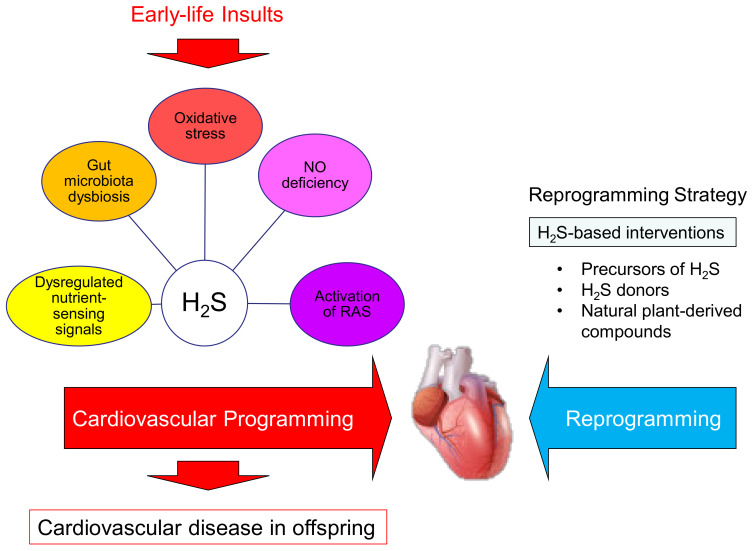Figure 3.
Schema outlining the cardiovascular programming versus reprogramming interventions. Maternal insults can induce cardiovascular programming, consequently leading to cardiovascular disease in adulthood. Hydrogen sulfide (H2S) interconnects with other mechanisms and plays a key role in the pathogenesis of cardiovascular programming. These mechanisms include oxidative stress, nitric oxide (NO) deficiency, activation of the renin–angiotensin system (RAS), dysregulated nutrient-sensing signals, and gut microbiota dysbiosis. Conversely, early H2S-based interventions may reverse or delay programmed processes to prevent cardiovascular disease of developmental origins by so-called reprogramming.

